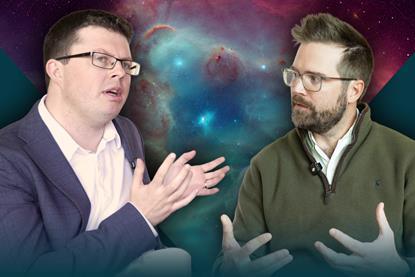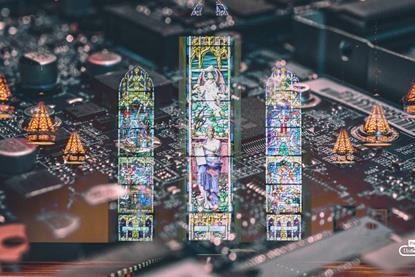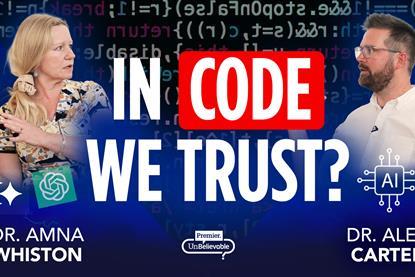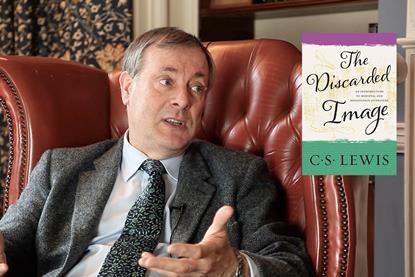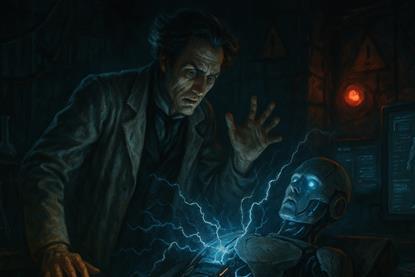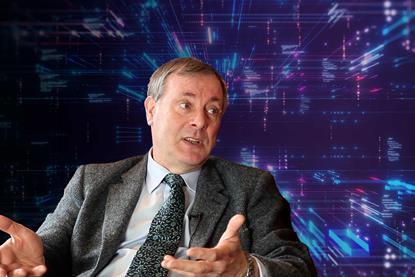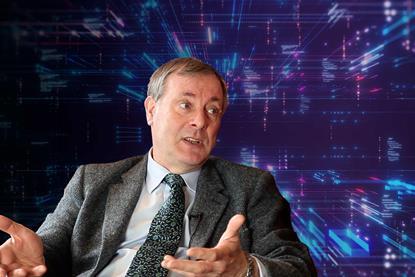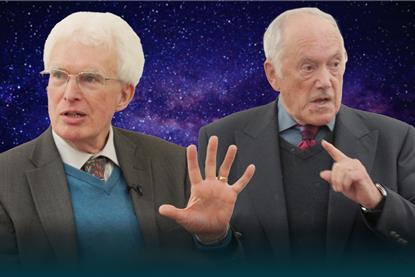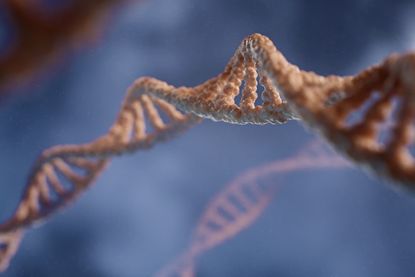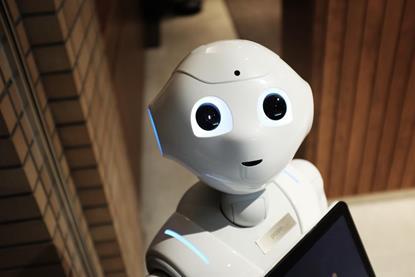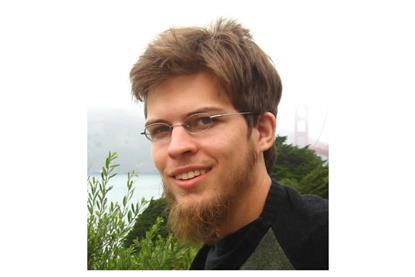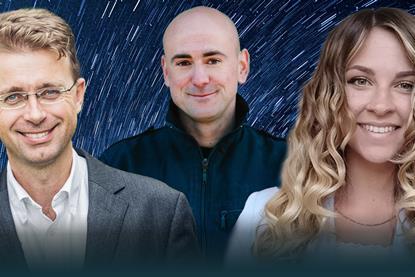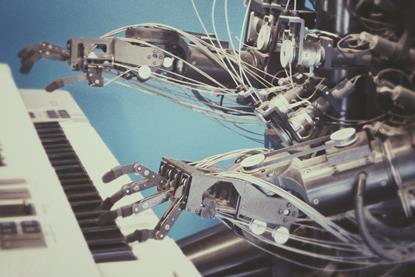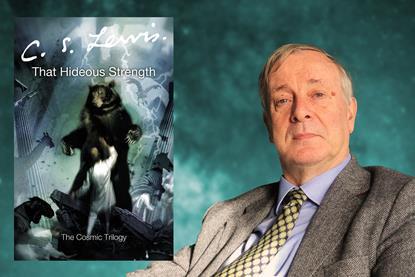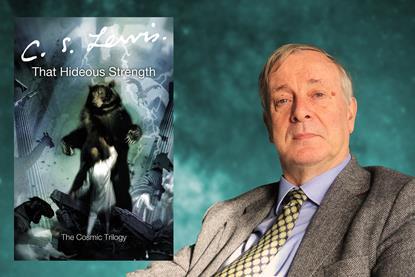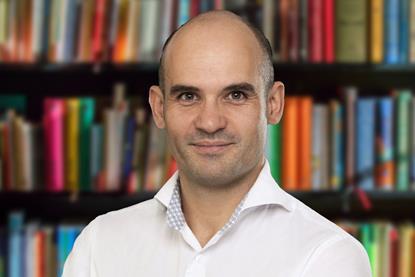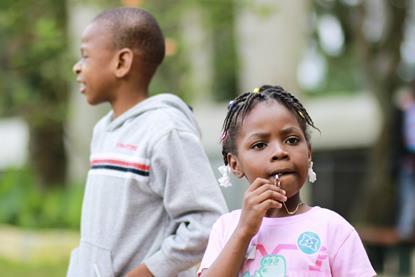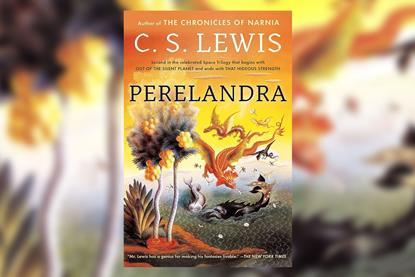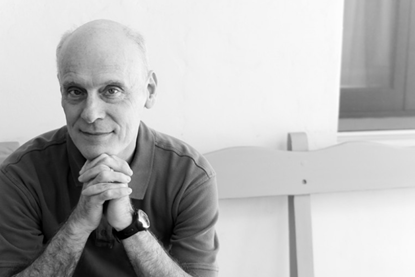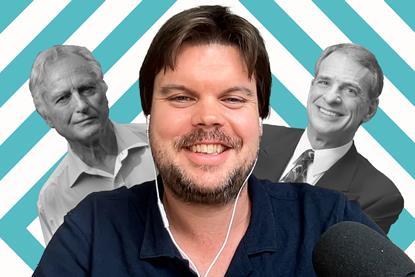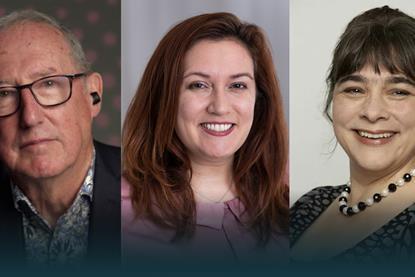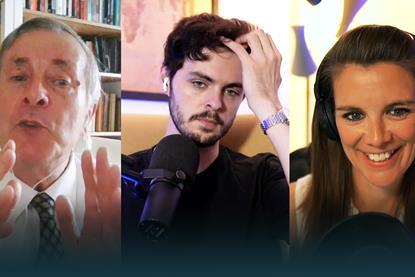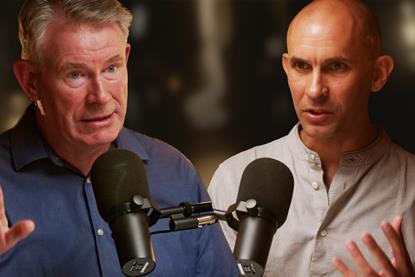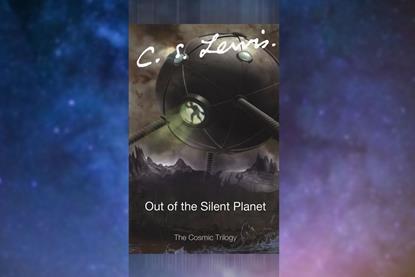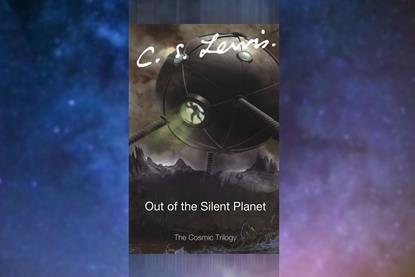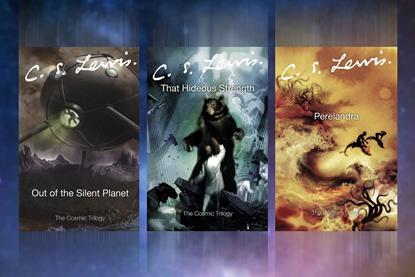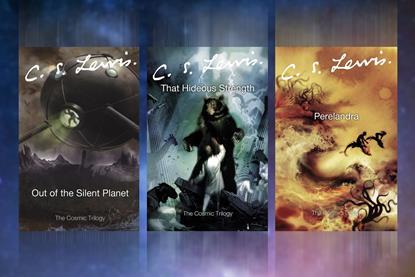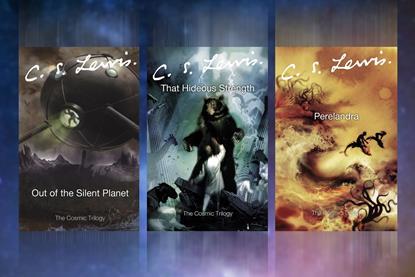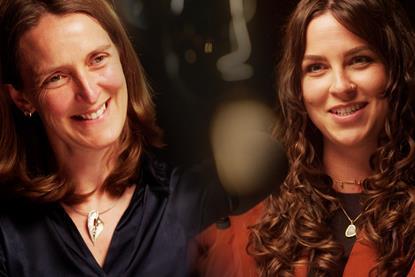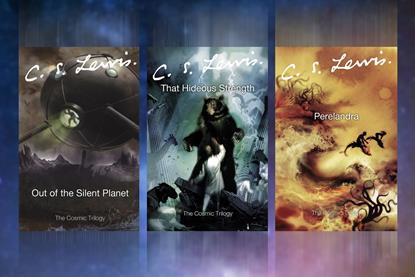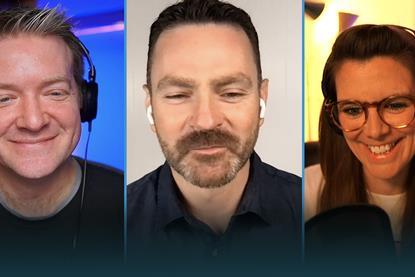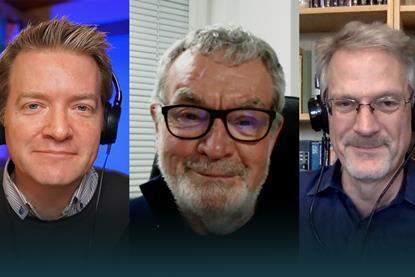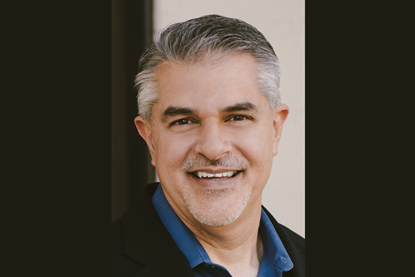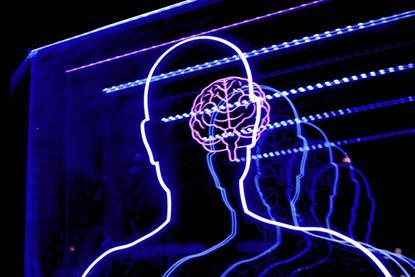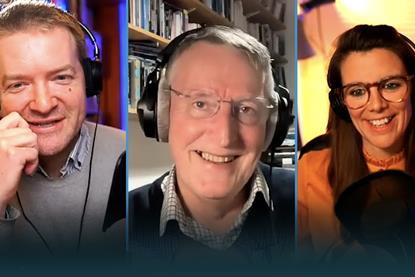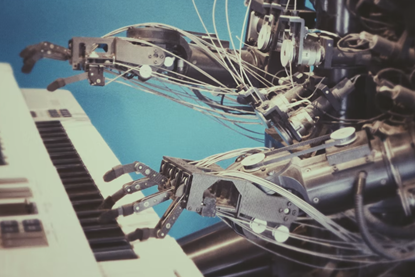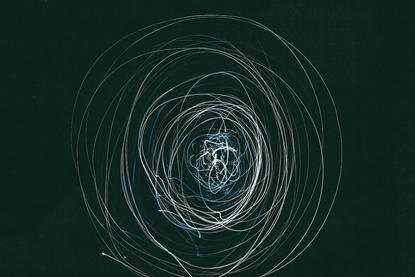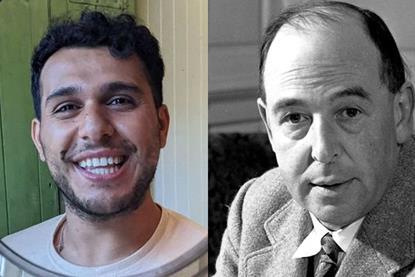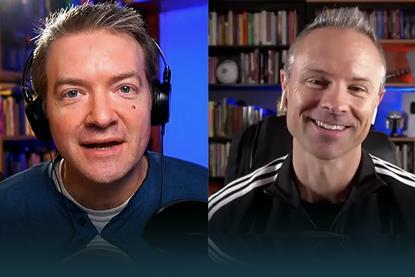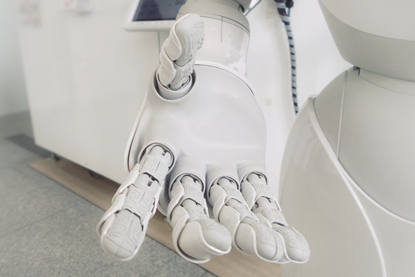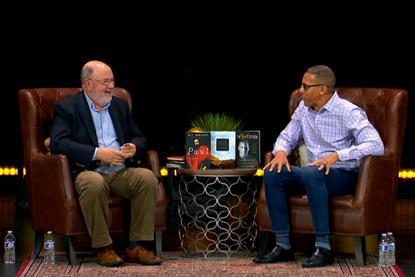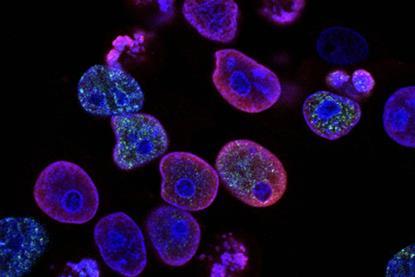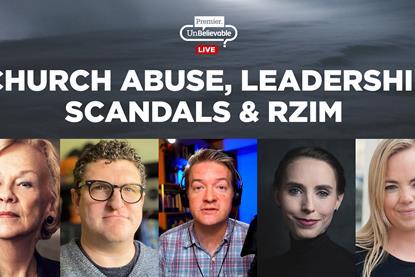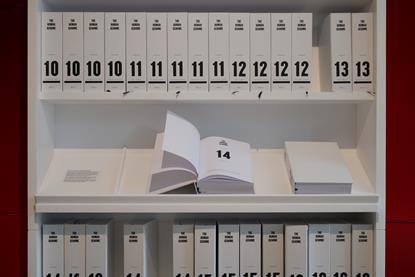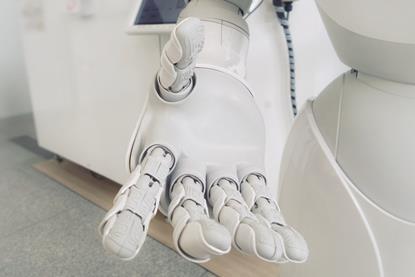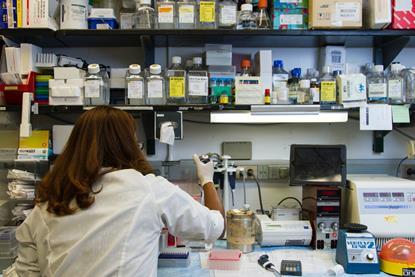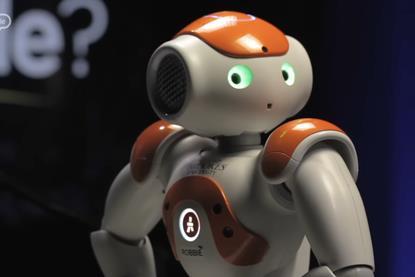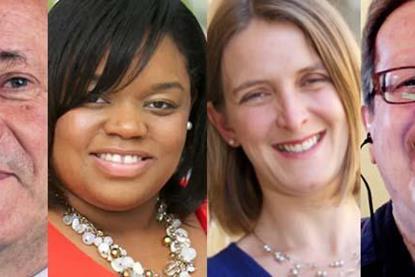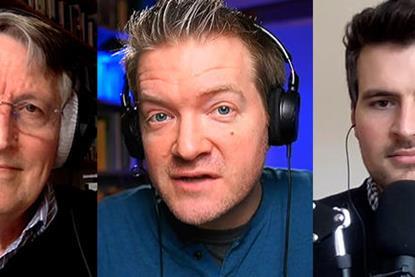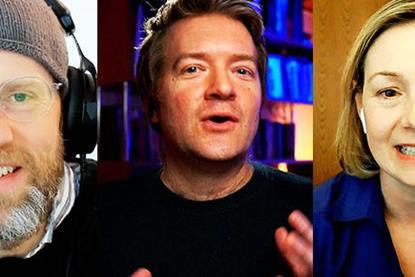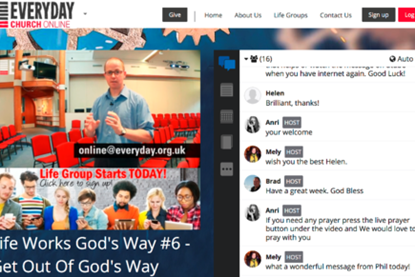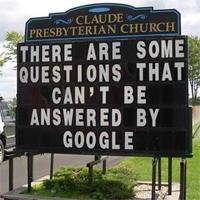Technology
Beyond Naturalism: What’s Real? Dr. Alex Carter vs Dr. Zachary Ardern - Hosted by Sam McKee
What is really real? In this wide-ranging conversation, Dr Zachary Ardern (evolutionary biologist, Wellcome Sanger Institute), Dr Alex Carter (philosopher, University of Cambridge), and Dr Sam McKee (science historian, Manchester Metropolitan University) sit down to revisit one of the oldest debates in human thought — the relationship between science, religion, and ultimate reality.
Has Christianity Lost Its Stickiness? Paul Kingsnorth & Bijan Omrani Debate Faith’s Future
Is Christianity’s decline a modern phenomenon, or has the West been losing its spiritual glue for centuries? In this thought-provoking Unbelievable? conversation, historian Bijan Omrani and writer Paul Kingsnorth explore how technology, culture, and shifting definitions of faith have shaped the church’s relevance - and whether today’s spiritual revival is the real thing or just another fleeting trend.
Can AI Create or Feel? Dr Amna Whiston & Dr Alex Carter debate Human vs Artificial Intelligence
What does it really mean to think, create, or feel? Are we losing our humanity in the age of AI - or discovering it anew? In this live schools debate with Aylesbury Youth For Christ, Premier Unbelievable? host Andy Kind is joined by Dr Amna Whiston (Oxford) and Dr Alex Carter (Cambridge) to explore the limits of artificial intelligence.
The Enhanced Games: Should we all want to become superhumans?
This episode explores the controversial Enhanced Games, where athletes can use any drugs or technology to boost their performance. As human enhancement moves from sci-fi to reality, the conversation unpacks ethical questions about biohacking, technology, and how Christian beliefs should guide our response.
The CS Lewis Podcast #214 Alister McGrath: Exploring The Discarded Image (Part 1)
Ruth Jackson speaks with Alister McGrath about CS Lewis’ final book, The Discarded Image, a reflection on the medieval view of the cosmos. Why did Lewis care so much about this old model of the universe, and what does it reveal about his views on science, imagination, and faith? They explore Lewis’s description of a geocentric, ordered world and how it contrasts with today’s scientific and secular worldview. Could this older picture still speak to us today? And how did Lewis understand the relationship between science and the biblical creation story?
Artificial Intelligence: The Beast We Build and the Words We Choose
As artificial intelligence advances at breakneck speed, are we creating a servant, a master—or something far more dangerous? Erik Strandness explores how our quest to “build a better beast” reveals both human ambition and folly, raising urgent questions about language, ethics, and the spiritual risks of playing God in the digital age.
The CS Lewis Podcast #213 Alister McGrath: CS Lewis on science, AI & technology (Part 2)
Alister McGrath reflects on how Lewis’ ideas might speak into today’s rapidly advancing technologies.
The CS Lewis Podcast #212 Alister McGrath: CS Lewis on science, AI & technology (Part 1)
In this episode, Ruth Jackson speaks with Alister McGrath about Lewis’ views on science, technology, and ethics.
What is the way forward for Christians in the new technological age?
Dr Tim Wyatt explores the complex relationship between Christianity and technology in today’s digital age. From neo-Luddites to techno-optimists, discover the balanced path for believers in the midst of AI advancements and social media debates
Using technology to get back to the simple Word
Businessman Richard Borgonon tells Premier Unbelievable why he founded Bible study app ‘The Word One to One’
Will Christians soon have more freedom on Facebook?
A surprising announcement from the social media platform in favour of free expression could bring to an end its history of suppressing Christian beliefs
God vs Science Debate with Peter Atkins and Keith Fox
Ruth Jackson returned to school to host this lively debate between Peter Atkins, renowned atheist and scientist, and Keith Fox, Christian biologist and theologian. In front of a live young audience, they explore one of the most profound questions: Is religion, just wishful thinking? Atkins and Fox tackle the big questions at the intersection of science, faith, and ethics, including: Are we just matter? Can science explain everything, or are there questions beyond its scope? Will further advancements in technology—like space exploration, genetic modification, and AI override any need or belief in God? From the accusation of “playing God” in genetic engineering to the nature of consciousness in artificial intelligence, this conversation challenges assumptions about what it means to be human and the role of faith in a scientific world.
Christianity does not hold back technological progress: it inspires it
The Bible is a book written by ignorant “Bronze Age goat herders,” according to many internet atheists across the world.
Does DNA’s language point to a creator?
The complexity and communicative qualities of our genetic building blocks are not easily explained by science, but instead point to intelligent design, argues Joel Furches
Should robots be given human rights?
A classic episode from the MOLAD vault today: If and when autonomous and intelligent robots come into existence, should they be granted rights, or even personhood? A growing number of technologists argue governments must lay out what status conscious and rational machines would have before they actually have been invented.
Neo-Luddism and the ‘myth’ of progress: Should Christians be pro or anti technology?
In recent weeks we have discussed how to keep modern technology at arms-length (smartphones in the home) and our excitement at how humans may be about to untap God’s blessing in creation through technology (the solar energy revolution). Today we ask the question: can we really hold these positions simultaneously?
Are screens in the home damaging our kids?
Theologian and author Andy Crouch spoke about the dangers of technology on a recent episode of Matters of Life & Death. Journalist Tim Wyatt explores Crouch’s arguments
Christians in Science: How a particle physicist finds harmony between the Bible and science
Particle physicist Aron Wall has loved both God and science from a young age. Here, apologist Joel Furches shares some of Aron’s life and thoughts
How should Christians respond to euthanasia?
The UK Government are discussing legislation to potentially allow assisted dying for terminally ill adults. Here, apologist Clinton Wilcox shares some of the issues raised by euthanasia
Unbelievable? Why do humans try to play God? Nick Spencer vs Emily Qureshi Hurst hosted by Andy Kind
For too long, the ‘science and religion’ debate has fixated on creation, evolution, cosmology, miracles and quantum theory, and not enough on the essence of what it means to be human. But this is a mistake argues one of our guests today, Christian academic Nick Spencer, Senior Fellow at Theos, in his new book ‘Playing God: science, religion and the future of humanity.’ Back on the show is Emily Qureshi-Hurst expert on the philosophy of time.
Matters of Life & Death: Tim Farron, toxic social media, and how to navigate the ‘mucky business’ of politics
This week we’re bringing you a classic episode from the MOLAD archive, when we were joined by the former leader of the Liberal Democrats Tim Farron to discuss social media and politics.
Matters of Life & Death: Tech hype - Should Christians resist or lean into AI?
In this episode we talk through the anatomy of a tech hype bubble, looking at previous cases such as the internet, cryptocurrency and smartphones to figure out where AI might be on the ‘S-curve’ of tech adoption.
Unapologetic #96 Jay Y Kim: Analogue presence in a digital world
Jay Y Kim shares his experience as a pastor in Silicon Valley. How is technology forming us? In what ways can we help young people live fruitfully in the digital space? How do we navigate AI? Are there any tips for finding rest in the midst of the busyness? In an era of misinformation, how do we decipher what is actually true?
The CS Lewis Podcast #146 That Hideous Strength: How do we resist evil?
In this final episode on The Space Trilogy, Alister McGrath finishes his discussion on That Hideous Strength, looking particularly at how evil emerges and how we stop technology, such as AI and nuclear weapons, getting out of control.
The CS Lewis Podcast #143 That Hideous Strength: Is technology dangerous?
Alister McGrath explores how CS Lewis addresses the perceived conflict between God and science. What insights can Lewis give about pertinent issues such as the atomic age, eugenics and Artificial Intelligence? When does technology becomes technocracy and why was Tolkien so anti tech? What are some of the ways religion is being challenged and how does Lewis expose these critiques?
Are smartphones evil? Unveiling dualities and finding redemption
Is modern technology to blame for our current mental health crisis? Should we just ditch our phones? Or can they be a force for good? Author Drew Cordell shares his thoughts
Unapologetic #88 Phil Knox: Why do we need friends?
Evangelist Phil Knox, author of Story Bearer and The Best of Friends, shares why personal tragedy and the COVID pandemic led him to write a book about friendship. Why does friendship matter? How do we protect our friendships from modern pressures? And how do we help young people to engage healthily with technology and social media?
Matters of Life & Death: Q&A: Why are we ignoring rising death rates among poorer ethnic minority children, and will the flesh-and-blood girlfriend become a thing of the past?
New official data in England reveals an alarming and much under-reported phenomenon – significant increases in mortality among children from the most deprived communities over the last two years.
The CS Lewis Podcast #128 Perelandra: It’s not for nothing that you are named Ransom
Looking at Perelendra, Alister McGrath explores key questions raised by CS Lewis: What is good? Should we be frightened of God? What is significant about Ransom’s name?
Christians in science: Why an astronomer believes the Bible is reliable
Apologist Joel Furches interviewed astronomer Dr Hugh Ross about science and his belief in God
Unapologetic #73 Peter Byrom: Dawkins’ argument from complexity
In the final part of their discussion, Peter Byrom delves into Dawkins’ argument from complexity, suggesting it may be a circular assumption. They unpack Dawkins’ fascinating exchange with Francis Collins in 2022, where Dawkins admits he may have a presupposition towards materialism. Plus, what does the future hold?
Is AI conscious and does it matter?
Dr Eve Poole considers whether we have to learn to be responsible for the souls we are creating now we are creating artificial intelligence and robots in our own image
Unbelievable? Should our AIs and robots have souls?
Should we be fearful or make friends with our robot helpers? And how can humans flourish in this brave new world? One of our guests today on Unbelievable believes the hidden power of humans is that we are imperfect yet essential?
Bennu the asteroid: Why does the Universe exist and why should we care?
Nasa’s Osiris-Rex returned from a seven-year mission with asteroid Bennu’s dust, aiming to shed light on the Universe’s formation. Erik Strandness examines the project’s theological and philosophical impacts.
Why secular sceptic Nir Eyal thinks we need Church
Theology student David MacPherson reflects on a recent episode of The Diary of a CEO, where Nir Eyal discussed the benefits of church and a worshipping community
Unbelievable? Coming to faith through Dawkins - Part 2: Is there a new New Atheism? Alister McGrath & Alex O’Connor
In the second part of their discussion based on the book Coming to Faith Through Dawkins, theologian Alister McGrath and YouTuber Alex O’Connor discuss where we may be heading in regards to religion and atheism.
Is the presence of God merely an illusion? A scientist investigates
Ken Miles, clinical academic and author of From Billiard Balls to Bishops: A Scientist’s Introduction to Christian Worship, explores whether we can feel the presence of God in an age of science
Will AI replace us?
Author Darren Richards reflects on artificial intelligence, looking at the value of human leaders
Unbelievable? The Robot Race - Part 1: Could AI ever replace humanity? - Nigel Crook & Anil Seth
The Big Conversation - Episode 5 | Season 5
The CS Lewis Podcast #121 Out of the Silent Planet: Nakedness, science and Ransom
Looking at Out of the Silent Planet, Professor Alister McGrath discusses whether nakedness within the book is significant. Plus, they look at whether CS Lewis is drawing on genuine science and the significance of Ransom’s name.
Matters of Life & Death: Q&A: Chronic Fatigue Syndrome, psychosomatic illness, AI acing exams, and the limitations of true creativity
Delve into another episode of listener questions! We’re addressing feedback on Chronic Fatigue Syndrome and exploring the enigma of ‘psychosomatic’ illnesses. Plus, we’re discussing the impact of AI like ChatGPT on academic assessments.
The CS Lewis Podcast #120 Out of the Silent Planet: Weston, Devine and JRR Tolkien
As we delve into the first book of the trilogy, Out of the Silent Planet, Professor Alister McGrath looks at some of its key themes. He explores the characters of Weston and Devine, looking at whether they represent particular ideologies and how Lewis exposes issues with their worldviews. Plus, why was JRR Tolkien such a fan of the book?
What is a near-death experience and what can it teach us?
Following a recent Big Conversation, journalist Heather Tomlinson explores near-death experiences
The CS Lewis Podcast #118 Evil, evolution and theological reflection in The Space Trilogy
Alister McGrath explores some of the theological themes within Lewis’ trilogy, such as incarnation, atonement and the problem of evil. How did Lewis view the relationship between science and religion? What did he think about evolution? How did he critique certain worldviews through his fiction?
Unapologetic #64 Ana Ávila: Has science disproved religion?
Ruth Jackson continues her conversation with Mexican writer Ana Ávila who studied clinical biochemistry. Why is there a perceived conflict between science and religion? Does science contradict the Bible? Can you prove there is a God?
The CS Lewis Podcast #117 Vivisection, mental health, racism and sexism
We dive into some of the important issues explored in Lewis’ Space Trilogy. Why was he so vehemently opposed to animal experimentation? What would Lewis say to those experiencing mental health struggles today? Plus, Alister McGrath responds to the accusation that CS Lewis was sexist and racist.
Are we more than just our brains?
Following a recent Big Conversation, Dr Erik Strandness explores the relationship between the brain and mind, near death experiences, the existence of the soul and the perceived conflict between religion and science
Christians in science: How a military meteorologist became a theologian
Charles Clough is a retired military meteorologist who became a Christian while at MIT. Apologist Joel Furches spoke to him about being a scientist and a theologian
The CS Lewis Podcast #116 Did CS Lewis believe in aliens?
Alister McGrath continues to explore questions raised by Lewis’ Space Trilogy - were any characters inspired by his “strange” Oxford colleagues? Do we need to understand medieval renaissance literature in order to read these books? Who is the narrator? What does Lewis think about extra-terrestrial life?
Unbelievable? Sharon Dirckx vs Emily Qureshi-Hurst • Do consciousness and near-death experiences point to an afterlife?
The Big Conversation - Episode 4 | Season 5
The CS Lewis Podcast #115 Why did no one want to publish Lewis’ Space Trilogy?
Professor Alister McGrath looks at the intended audience of CS Lewis’ Space Trilogy and explores some of the influences behind the books, including JRR Tolkien and Charles Williams.
What does it mean to be human?
Are science and religion in conflict? Is there more to life than mere matter? Where do we find meaning? Erik Strandness explores these big questions in light of a recent Big Conversation with atheist Philip Ball and Christian Nick Spencer
Matter of Life & Life: Digital church: Worship on Zoom, pandemic revival, time-shifting and Gnosticism (Replay)
We are both on holiday this week so we’re bringing you an episode we first recorded in 2021 during the covid pandemic. It explores one of the most significant and potentially long-lasting ways the covid pandemic has affected church life – the shift to digital.
Christians in science: Can a Quantum Physicist really believe in God?
Dr David Snoke is a leading scientist in his field. Apologist Joel Furches spoke to him about why he believes science and God go hand-in-glove
Matters of Life & Death: Digital persecution: Deadly rumours on WhatsApp, a ‘Panopticon’ of censorship, the corrosion of trust, and China’s spreading surveillance state
The persecuted church today lives as it always has under the threat of arrest, imprisonment, physical attack, verbal threats and harassment, and even death. But today these traditional methods are supplemented by the technological revolution.
Matters of Life & Death: Generative AI: Second Contact, avoiding the fate of Nokia, hacking the human operating system, and the resilience of Western democracy
New artificial intelligence software has swept through the internet over the last year. Many are thrilled by the potential and power of AI which can generate brand new text, images, sound and video. But others are sounding the alarm.
Is atheism just a ‘lack of belief’ in God?
Apologist Joel Furches explores various definitions of “atheism” and the consequent impact of these
Matters of Life & Death: Effective altruism 1: QALYs, longtermism, Jeremy Bentham’s embalmed corpse, and ethical elitism
Explore effective altruism, a data-driven utilitarian approach to philanthropy. Discover its rapid growth, potential deviations from original intentions, and the challenges of turning ethics into an algorithm.
Unbelievable? Celebrating 17 years - Justin Brierley, Ruth Jackson, and Vince Vitale
The Unbelievable? show has been broadcasting for over 17 years. Justin Brierley and Ruth Jackson take a retrospective tour through highlights from the show from day one to some of the most significant debates that have been hosted, before being joined by Dr. Vince Vitale for a special announcement by Justin.
Matters of Life & Death: Webinar 2: Totalitarian regimes, the tobacco regulation lag, eternal life for materialists, and ‘Don’t be afraid’
In the second part of John’s webinar with Premier Unbelievable, he takes questions from listeners on everything from whether AI tech is inching us towards the end times to how families can stave off the destructive influence of smartphone addiction.
Matters of Life & Death: Webinar 1: Redefining human-ness, testing for consciousness, hoodwinked by ChatGPT, and a black box
Part one of John’s ‘How to live faithfully in a technologically confusing world’ webinar explores the staggering sophistication of the latest generation of AI chatbots and what ethical questions these might throw up for Christians.
Unbelievable? Optimism or extinction? What’s the future of humanity? John Hands & Perry Marshall
Secular scientist and academic John Hands has been described as a ‘polymath’. His 2016 book Cosmosapiens received wide praise for its analysis of human evolution since the beginning of the universe. His new book ‘The Future of Humankind’ looks ahead to what lies in store for homosapiens.
Ask NT Wright Anything #161 Housebound prayers, computer programming, art and music - what counts as kingdom work?
Tom answers practical questions about the role of those unable to be physically active - does their prayer and meditation make a difference in the Kingdom? A computer programmer questions whether his work is a worthwhile activity in Kingdom terms? Are there any forms of art that go against our image-bearing creativity?
Finding God through science – an atheist discovers chemical evolution can’t adequately explain the origin of life
Jana Harmon shares the story of Dr Fazale Rana who discovered God through his pursuit of science. His paradigm shift began when he began to find scientific explanations for the origin of life inadequate and started to look elsewhere
Should we trust our brain or our emotions?
Erik Strandness explores how we can reconcile reason with joyfully dancing in our underwear
Matters of Life & Death: Surveillance capitalism 2: QR codes in China, privacy, the manipulation of desire, and a neo-Benedictine Rule of Life
In this episode we think through more of the implications of living in a non-private digital village in the 21st century, but is privacy even a Christian virtue in the first place?
Matters of Life & Death: Surveillance capitalism 1: Trillions of data points, clickbait, an advertising arms race, and BF Skinner’s pigeons
Every tap, swipe and click we make on our phones, tablets and laptops is being recorded by big tech firms. This is often called surveillance capitalism – a network of products and services we use every day which sucks up large quantities of data about us and then sells it on to advertisers at huge profits.
Matters of Life & Death: Cryptocurrency 2: Technicism, the Parable of the Talents, get-rich-quick schemes, and the wheat and the weeds
In the second part of our discussion with Chris Goswami, we dive into some of the ethical arguments for and against cryptocurrencies.
How should Christians respond to transhumanism?
Apologists Clinton Wilcox and Joel Furches explore some of the core principles of transhumanism and their ramifications
Matters of Life & Death: Cryptocurrency 1: Bitcoin, warehouses of computers solving maths puzzles, the dot.com bubble, and FOMO
Recent news headlines have been full of discussion of the current ‘crypto winter’, a season where the value of cryptocurrencies has plummeted causing financial devastation and destroying what looked like thriving crypto institutions.
Unbelievable? ChatGPT, AI and the future - John Wyatt Q&A on living faithfully in a technologically confusing world
Justin and Ruth were joined by research scientist Dr John Wyatt on a live show to talk about AI, robotics and technology. Listeners asked questions about machine consciousness, the potential dangers of AI and how to raise children in a tech world.
Matters of Life & Death: Martin Rees 3: Pre-emptive science fiction, the morality-reality gap, adventurers on Mars, and the mind of the Creator
In the third and final installment of John’s discussion with Lord Martin Rees, the Astronomer Royal, they discuss Martin’s views on the future of space travel and astronauts, and whether some robotic future progeny of humankind will eventually replace us in exploring the universe.
Should Christians be Concerned about the Rapid Advancements in Artificial Intelligence?
As artificial intelligence (AI) technology continues to advance rapidly, Sarah Johnson explores the potential ethical and societal impacts of AI and the potential benefits of the technology.
Matters of Life & Death: Martin Rees 1: Advances in artificial intelligence, the Eliza effect, passing the Turing Test, and the problem of other minds
Today’s episode is a little different from normal as we’re going to begin a short series sharing a recent conversation John had with Lord Martin Rees, the astronomer royal.
Matters of Life & Death: Social media and politics 2: A mucky business, the ultimate conspiracy theory, ‘showbiz for ugly people’, and and atomised individuals
In the second half of our conversation with Tim Farron, we discuss his conviction that Christians should get stuck into politics despite its compromises and challenges.
Matters of Life & Death: Social media and politics 1: The judgemental society, 3,000 offensive tweets a day, freedom from vs freedom to, and Elon Musk’s Twitter
This week we’re joined by the former leader of the Liberal Democrats Tim Farron to discuss social media and politics. Research suggests UK members of parliament like Tim get sent thousands of offensive tweets every single day.
Unbelievable? How to overcome tribalism in politics and the church - Patrick Miller & Keith Simon
‘Truth Over Tribe: Pledging allegiance to the lamb, not the donkey or the elephant’ is the name of the new book by Patrick Miller and Keith Simon. They are both church pastors in the USA who started the Truth Over Tribe podcast to combat polarisation in politics, culture and Christianity.
The CS Lewis Podcast #81 Joshua Karras - porn, depression, domestic violence and The Screwtape Letters
Ruth Jackson continues her conversation with author Joshua Karras who has penned a modern appropriation of The Screwtape Letters. 80 years after the publication of CS Lewis’ classic epistolary novel, Karras shares why he has included some of the contemporary temptations in his literary adaptation.
Unbelievable? Sean McDowell live Q&A on sexuality, transgender and culture war questions
Apologist and author Sean McDowell joined Justin along with hundreds of Unbelievable? listeners for a live show talking about Sean’s new book ‘A Rebel’s Manifesto’ and taking questions on LGBT, same-sex marriage, transgender, divorce, theology and more.
What does Christianity have to say about ‘big tech’?
Writer Steve Schramm explores the pros and cons of technology and how Christians should engage with it
Matters of Life & Death: AI sentience 2: I-Thou relationships, talking to stuffed animals, thanking Alexa, and Turing red flag laws
Building on last week’s discussion of AI chatbots, we consider the theology and sociology of why interacting with other human beings is so central to our personhood.
Ask NT Wright Anything #139 Q&A on New Creation & Salvation with Pastor Miles McPherson Pt 1
NT Wright was interviewed by Pastor Miles McPherson at Rock Church San Diego. They talk about Tom’s work to redescribe the gospel in terms of new creation, and what that means for the concept of ‘getting saved’. Recorded in 2019.
Matters of Life & Death: Embryology 2: Psalm 139, reconsidering ‘ensoulment’, the language of right and wrong, and co-operation with evil
Building on last week’s whistlestop tour through the latest ground-breaking embryo research, in this episode we consider what we should do as Christians about all this.
Church abuse, leadership scandals & RZIM: Rachael Denhollander, Amy Orr-Ewing, Mike Cosper & Diane Langberg
Four guests and hundreds of attendees gathered with host Justin Brierley for the live webinar event ’Falling From Grace: Addressing Power, Leadership, and Abuse in the Church.
Matters of Life & Death: Genetics 2: Whole genome sequencing, Gattaca, de-identification versus anonymity, and Big Data Towers of Babel
In this episode we pick up our conversation with clinical geneticist Melody Redman to talk about a new NHS programme in England which is piloting whole genome sequencing of newborn babies.
AI won’t overthrow humanity but it could radically undermine it
Erik Strandness on the promise and perils of AI following The Big Conversation between Lord Martin Rees and Dr John Wyatt
Matters of Life & Death: Genetics 1: Rare diseases, libraries of recipe books, BRCA1, and precision medicine
Each of us carries around in our cells about 20,000 different genes – a unique set of biological code which shapes how our bodies develop.
Moral Machines: How do we build robots that know right from wrong?
Deep-fakes, Turing Tests and chatbots - AI systems are becoming ever more human-like. Robotics expert Prof Nigel Crook says we need to make sure they are moral too.
My Fair LaMDA: Why Google’s ‘sentient’ AI is not conscious, it’s just another computer programme
Peter S Williams draws on philosophical arguments and a Big Conversation on AI and Robotics to show why recent claims of a ‘sentient’ AI are still in the realm of science fiction.
Lee Strobel on the Case For Heaven PLUS Alister McGrath, Lisa Fields, Jeff Vines and Sharon Dirckx conference preview
Justin interviews some of the contributors to Unbelievable? 2022 including theologian Alister McGrath, African-American apologist Lisa Fields, US pastor Jeff Vines and neuroscientist Sharon Dirckx. Lee Strobel also chats to Justin about his new documentary film The Case for Heaven
The surrogacy industry: John & Tim Wyatt on the ethics of paying for pregnancy
This episode was recorded shortly before Russia invaded Ukraine. Prior to the outbreak of war, Ukraine’s lax surrogacy laws have made it a major destination for so-called ‘reproductive tourism’ for infertile and same-sex couples who wish to have a baby.
Unbelievable? Nick Bostrom and Ros Picard - God, AI & the future of humanity: Is technology the key to immortality?
Episode 2 | Season 3 of The Big Conversation. Prof Nick Bostrom, director of the Future of Humanity Institute at Oxford University and Prof Rosalind Picard, director of the Affective Computing Research Group at MIT debate the philosophical and spiritual questions raised by AI. Could AI become conscious? Are we living in a simulation universe? Could technology be the key to immortality?
Why it is high-time the Church learns to fully embrace the internet
Rev Jim Keat believes that the internet is changing the way that we do Church – and that’s a good thing
I attended an online church, here’s what happened
Everyday Church, a London based UK church has launched an experimental ‘online congregation’. Could this be the future? Sam Hailes logged on to see what church in the digital age might look like
Is Facebook A Good Place To Defend Your Faith?
I love Facebook, Twitter and social media – it’s a great way to connect with people online. But there’s also a danger. Sometimes the anonymity of the computer or smart phone screen means we can end up saying things to people we wouldn’t necessarily say to their face.
Why Science (And Google) Won’t Answer All Your Questions
I saw a sign on a church notice board recently; it said: There are some questions in life that can’t be answered by Google.




